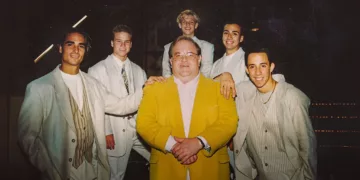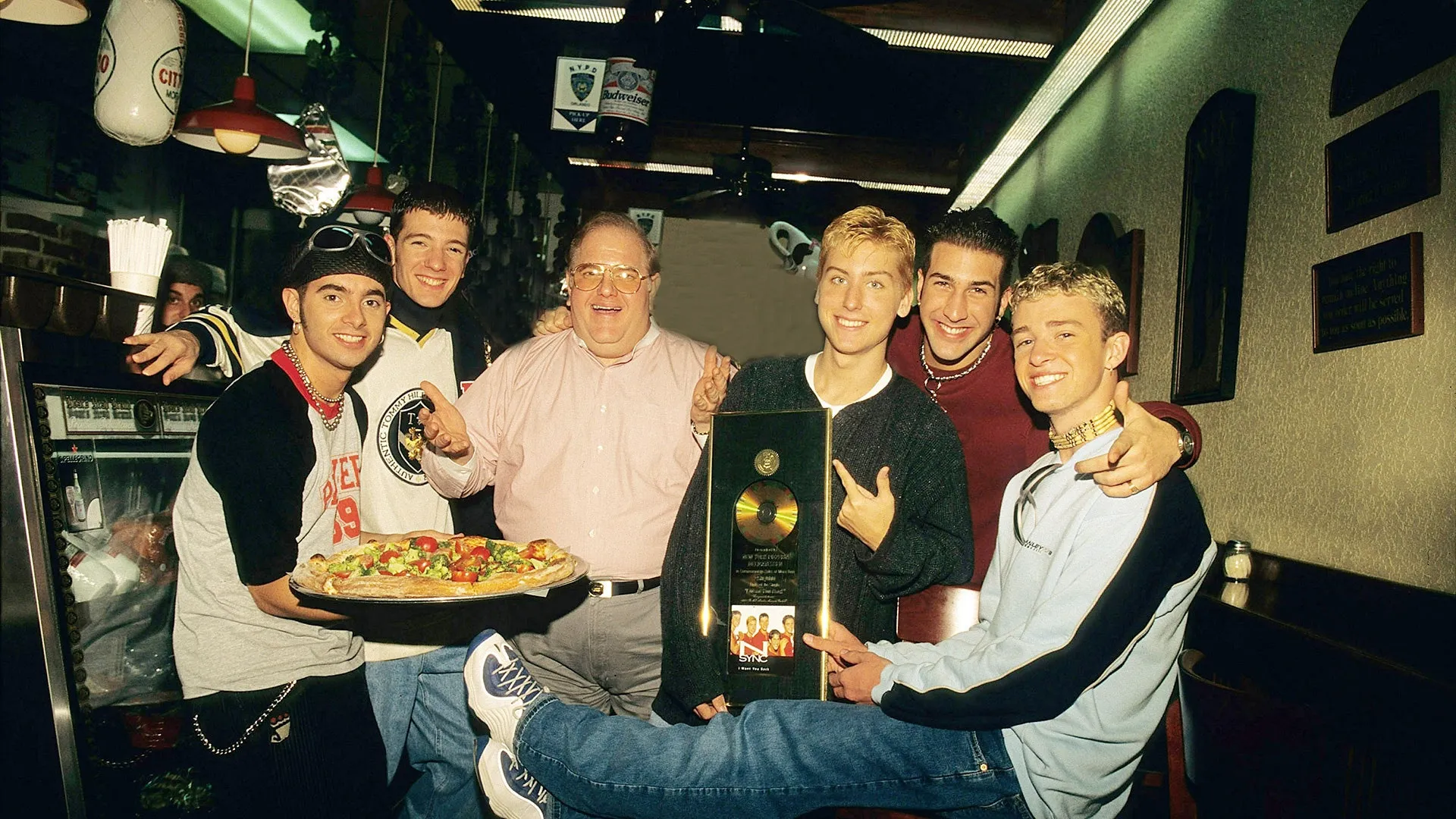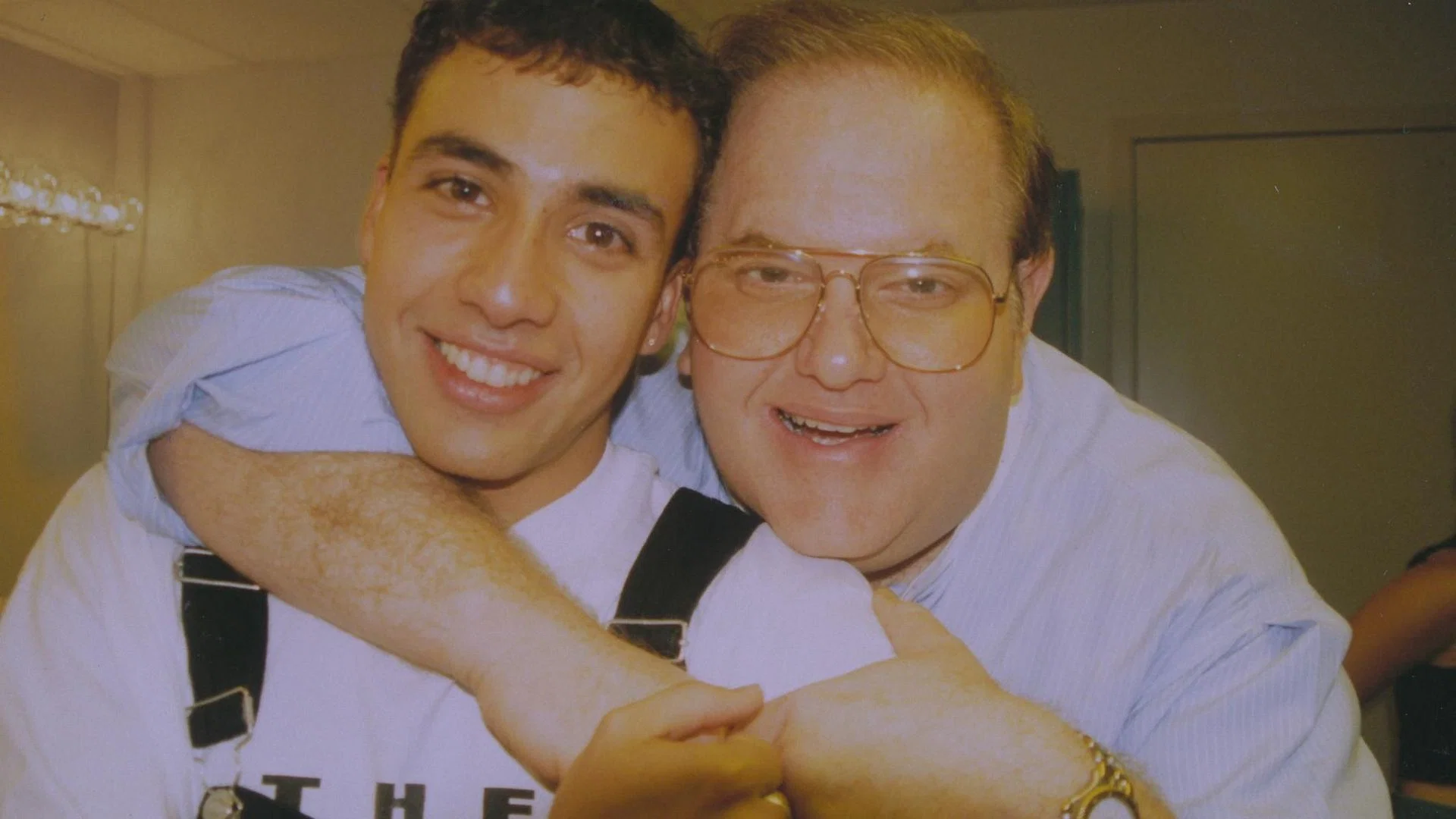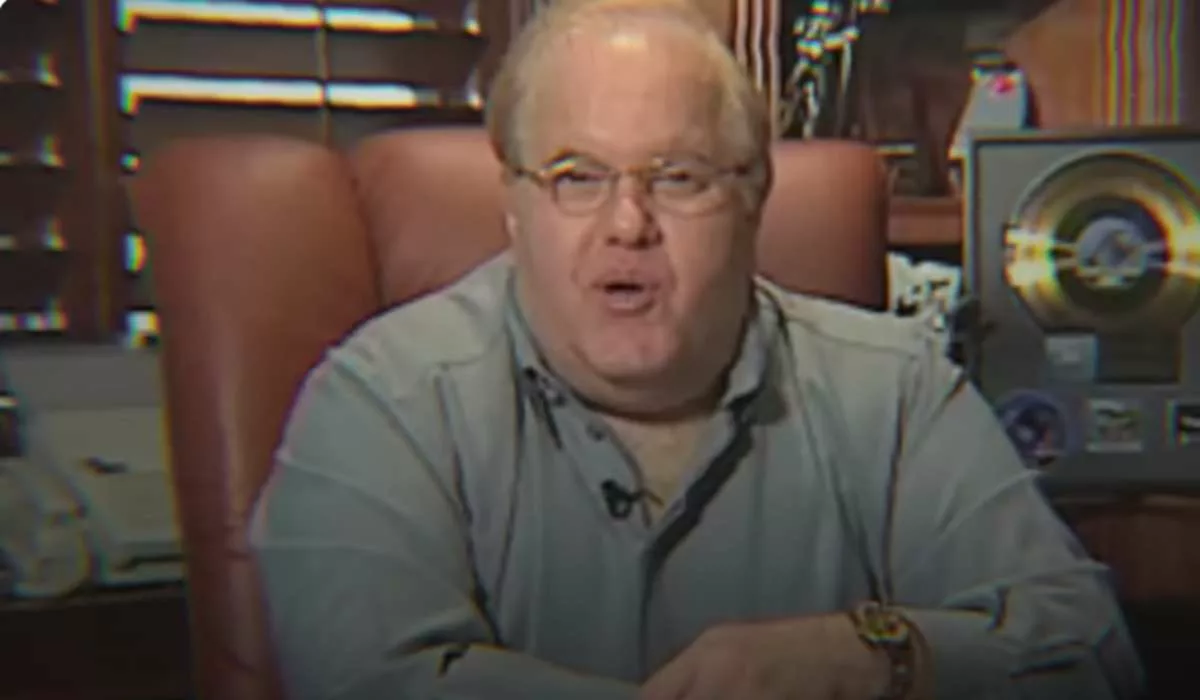By the late 1990s, boy bands like the Backstreet Boys and NSYNC were ruling the airwaves and dominating world tours. But while pop fans knew their sweet melodies, few knew the man pulling the strings behind many of these groups. Dirty Pop: The Boy Band Scam introduces us to Lou Pearlman, the ambitious music impresario who shaped America’s boy band boom. It also reveals his hidden talent for elaborate financial schemes that would eventually topple his carefully crafted empire.
The documentary traces Pearlman’s unlikely journey from blimp rental mogul to masterminding blockbuster acts. First came the Backstreet Boys, who Pearlman catapulted to international stardom. Seeing potential for more, he assembled NSYNC by conducting nationwide auditions. Both bands achieved phenomenal success, but questions lingered around Pearlman’s mysterious business dealings. Were his wealth and extravagant lifestyle legitimate, or was something more deceptive beneath the surface?
As bands grew wary of Pearlman’s financial management, clues emerged of a deeper deception. A web of fake companies and nonexistent funds showed Pearlman had supported his music ventures through massive fraud. When his schemes collapsed, hundreds lost life savings in the resulting Ponzi fallout. Police closed in on Pearlman’s global operations, uncovering one of history’s most extensive cons.
Dirty Pop tells a cautionary tale of fame, greed, and blurred morality. Yet amid the controversy, Pearlman’s role in popularizing boy bands cannot be denied. This documentary explores both his gift for nurturing talent and his penchant for deception, introducing the complex man whose legacy continues to shape pop culture in unpredictable ways.
Lou Pearlman’s Pop Empire
Before boy bands dominated the charts, Lou Pearlman was taking his first steps in show business. No one could have guessed where these would lead. It all began with Pearlman renting out blimps for advertising—an eye-catching way to wow customers. But he had bigger dreams of succeeding in music.
When New Kids on the Block blew up in the late 80s, Pearlman sensed an opportunity. He’d launch a new generation of boy bands to capitalize on their popularity. In 1993, auditions began for what would become the Backstreet Boys. With their sweeping harmonies and good looks, the guys clicked instantly. Pearlman flew them to Europe, where their debut album became a smash hit. Word of this new sound soon spread stateside.
Now a seasoned music impresario, Pearlman wasted no time in unveiling his next act. In 1995, he assembled NSYNC using the same formula that created Backstreet Boys. Both bands came to exemplify the 90s boy band era, but Pearlman wanted an empire. He cultivated stars like O-Town, Take 5, and Natural under his Trans Continental label. Whether crafting an image or developing voices, Pearlman knew exactly what fans desired.
Though manipulative in his methods, Pearlman possessed an uncanny knack for A&R. He could detect potential in amateurs and transform them into global icons. By keeping an assembly line of acts, Pearlman’s fortunes grew as fast as his fame. Little did anyone know the fortune was ill-gotten or how high this Svengali would rise before his house of cards came toppling down.
Lou Pearlman’s Downfall
Life was good for Lou Pearlman in the late 90s. His boy bands dominated charts worldwide while fans packed arenas. But all the fame and fortune hid deeper troubles behind the scenes. Pearlman juggled dozens of ventures, yet few knew his wealth came from shaky ground.
It started small with made-up firms to lease blimps and jets. Celebs didn’t mind the flimsy outfits if it meant flashy rides. Soon though, Pearlman went further. To fund new acts, he recruited investors with promises of doubling returns. Only the cash flowed to him, not back to them.
At the same time, Backstreet and NSYNC hit the big time. Millions poured in, yet royalties rarely did. Lawsuits exposed the bands saw mere crumbs despite sold-out shows. Turns out Pearlman siphoned the profits into phantom companies controlled by him alone.
He kept the con afloat by bringing in fresh money. Hundreds fell for smooth pitches, oblivious that their cash propped up luxuries, not legitimate deals. Pearlman lived like an oligarch while debts grew—a scheme fit for Hollywood. But like all pyramids, it had to end.
Cracks surfaced when investors demanded payouts Pearlman couldn’t provide. Outraged by the theft, the bands bailed for good. Police closed in as victims grasped their “investments” vanished forever. In the wreckage lay ruins of fortune and faith amounting to over 500 million dollars stolen.
Pearlman’s Svengali talents couldn’t save him now. Jail was certain with 25 years behind bars. There the disgraced creator would meet his end, his incredible music machine built from practices no less criminal than the man pulling the strings.
Lou Pearlman: Villain or Visionary?
The reactions to Lou were as complex as the man himself. Former bandmates unpacked their feelings about the moneyman who made them stars. Howie from Backstreet reflected on the manipulation but also saw Lou’s musical magic. Chris from NSYNC sympathized with victims yet acknowledged Pearlman’s pivotal role in pop culture.
Their lawyer, Cheney, turned fiercely against Lou when unpaid. But others remained conflicted. Natural’s Michael granted his persuasiveness sold big dreams. Employees told of the charisma that pulled them deep under Lou’s spell, only learning too late of the deceptions. Where exactly did business sense end and the schemes begin? Did anyone truly grasp the full extent?
Fans struggled most to reconcile joy versus wrongdoing. They loved the music yet grieved for those wrecked by Lou’s lies. How could the same man bring both pleasure and plunder? No simple answers arose from these gray areas in the tale.
Court proceedings offered some closure as Lou paid for his financial frauds. Still, questions lingered of the human cost buried in his complex case. Was punishment justice, or did it close the book prematurely on understanding such a puzzling figure? In the end, only Lou himself could explain the invisible lines he crossed. But with him gone, all we have are the unresolved debates his legacy inspired.
Dirty Pop’s Successes and Shortcomings
Dirty Pop takes us back in time with some terrific archival footage, rare glimpses showing Pearlman’s early hustle. We see him convincing Backstreet’s members, still teenagers then, to board his jet for glitzy tours. You can’t help but be intrigued by this audacious yet affable man. The interviews provide insight too, especially Chris relaying how Pearlman viewed bands as rival brands.
Yet the documentary falls short also. While it dutifully outlines Pearlman’s scheme and downfall, the filmmakers shy from fully exploring the complex questions raised. How much responsibility lies with those who profited alongside Lou while the scheme grew? By avoiding these murkier areas, they forfeit a real opportunity to unpack the entire twisted saga.
Most disappointingly is the unnecessary use of deepfake. Seeing Lou’s face regurgitate text serves no purpose beyond showing off technology. It undermines trust in what we see, which in a film about deception seems an unwise choice.
And too, some key voices are missing. Without Justin Timberlake’s perspectives, you feel the story is not completely told. His global fame could have provided insight others cannot.
Still, Dirty Pop maintains interest through its engaging examination of Pearlman’s musical and financial exploits. As more a warning than a deep dive, it serves as caution against tangled webs where charisma meets corruption. Both hailing Lou’s vision and exposing his violations, the film offers no easy answers but much to discuss on the complex man who still fascinates and frustrates so many years later.
Lou Pearlman’s Complex Legacy
Pearlman’s frauds earned him 25 years behind bars, but he passed eight years into his sentence. Fellow inmates likely offered little sympathy for the disgraced hitmaker. His crimes crushed hundreds who trusted him as an astute businessman.
Still, Pearlman left an indelible mark. The smooth pop sounds he launched continue serenading millions worldwide. Millions also poured in for acts like Backstreet Boys and NSYNC, though most profits skipped town with their Svengali. These crossroads show Pearlman as both genius promoter and master manipulator.
Questions linger over who knew of his schemes as fame and wealth ballooned. Were some turning blind eyes as the money rolled in? Pearlman dreamed big for music but gambled ruthlessly with others’s futures.
Morality proved murky where showbiz meets dollars. While justice held Pearlman to account, the full human toll may never materialize. For his victims, regaining stolen lives seems impossible.
Yet through it all, Pearlman’s spirit and smash careers he crafted cannot be denied. Fame often breeds excess and blurred lines. His saga spotlights darkness that can lurk where fame, money, and trusting hearts intersect. Ultimately, it serves as a reminder for all to safeguard dreams and steer clear of promises that seem too good to be true.
Not All Heroes Wear Capes
Dirty Pop unravels a truly wild tale. At the center stands Lou Pearlman—a man who launched music empires and built his own downfall. His story shows how even the mightiest schemas start with a flick of deception.
This series tracks Pearlman’s rise by crafting pop gold out of Backstreet and NSYNC. We see his sheer bravado spin dreams into reality through the force of personality alone. But darker deeds financed the fantasy, leaving shattered lives in the wreckage.
By memoir’s end, Pearlman’s scams amounted more than any heist film. Yet even in disgrace, music lived on, changing millions. Dirty Pop doesn’t pretend easy answers to its messy mix of success, betrayal, and fandom’s heartstrings.
Questions linger over who helped pave the road to riches and ruin. As do the human costs of trust broken. Though justice held Pearlman to account, stolen life cannot be restored.
If nothing else, this documentary proves even the largest-than-life are prisoners to flaws. It offers no easy roles as hero or villain but leaves us hoping life’s lessons—of safeguarding what we love—are learned from this captivating con.
The Review
Dirty Pop: The Boy Band Scam
While Lou Pearlman's schemes make for an immensely compelling story, Dirty Pop fails to bring the same layered nuance to its examination of the man himself. Between incomplete casting and an overwrought gimmick, this documentary leaves its subject and impact somewhat obscured. Nonetheless, the cultural impact and moral dilemmas posed ensure Pearlman's saga deserves reconsideration.
PROS
- Fascinating real-life story at the center of the documentary
- Cultural significance of the boy bands launched by Pearlman
- Insight into Pearlman's rise and the massive scale of his fraud
CONS
- Failure to land interviews with some major players
- Overuse of unnecessary "deepfake" technique
- Lacks nuanced analysis of Pearlman as a complex figure
- Questions around the culpability of Pearlman's associates left unanswered.






















































Discussion about this post